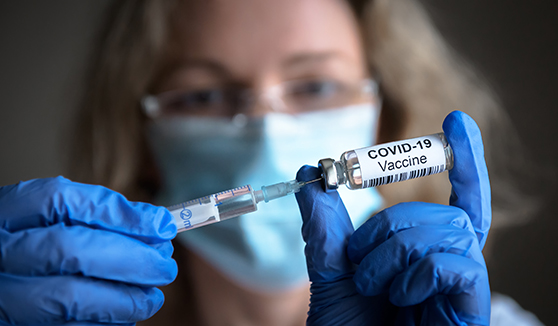More:
News & Stories
COVID-19 vaccine effectiveness: Uncovering transmission dynamics for policymakers
Vaccine effectiveness is usually measured in terms of protection from infection, clinical disease, or death. However, this definition overlooks an important aspect: risk of transmission.

A major contributing factor to infectivity is viral load. Notably, the waning effect of infection-induced protection has not been thoroughly analyzed before in terms of viral load and infectivity. Considering the recent COVID-19 pandemic and the vaccinations’ effect on viral load, the risk of transmission has significant implications for public health policy and security.
In search of greater insight into COVID-19 infectivity, Dr. Naama Kopelman and Dr. Jonathan Woodbridge, two researchers from the Department of Computer Science at HIT, analyzed the results of more than 460,000 COVID-19 recovered and/or vaccinated individuals. They found that while vaccination does indeed reduce COVID-19 variant Omicron's viral load (as determined by cycle threshold (Ct) levels in PCR tests), the vaccine’s effect wanes rapidly. In contrast, those who recover from a COVID-19 infection have a significantly slower waning rate.
This study, published in Nature Communications, indicates that, overall, while the vaccine is effective in decreasing morbidity and mortality, the presumed vaccination-related immunity to SARS-CoV-2 has only a negligible long term (>70 days) effect on infectiousness. The combination of vaccine waning and vaccine evasion are most likely the drivers of this finding.
Consequently, these findings raise the need for policy makers to balance judicious use of vaccine resources and decreasing disease burden, especially in high-risk populations and the short-lived vaccine-endowed immunity in formulating vaccine campaign strategies. The demonstrated short-lived immunity and rapid waning, on one hand, and the limited impact on the population, on the other, may indicate that only high-risk groups should receive boosters.
These finding are an outcome of a research project conducted by Dr’s Kopelman and Woodbridge, together with Dr. Sharon Amit, Head of the Clinical Microbiology Laboratory, Sheba Medical Center; and Dr. Amit Huppert, Director of the Biostatistics and Biomathematics Unit, Gertner Institute for Epidemiology & Health Policy Research, Sheba Medical Center, and a senior lecturer at the School of Public Health, Tel Aviv University.
- News & Events
International Week of Interdisciplinary Studies and Academic Collaborations in Crete
A substantial delegation of 16 students and four faculty members from HIT Holon Institute of Technology participated in week-long international activities and events at HMU-Hellenic Mediterranean University in Crete. ...


 Additional programs
Additional programs
